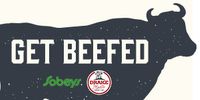If your lawn has a furrowed and ruffled look to it this spring, along with patches of closely shorn blades, you can thank our little rodent friend, the vole. Voles are found throughout Saskatchewan, and their populations are cyclical in nature. This year, however, evidence of their winter activity is prevalent throughout the region.
Paul Kneeshaw owns and operates Misty Gardens greenhouse in Humboldt. With a Masters degree in agricultural sciences and over 20 years in the greenhouse business, Paul has a wealth of knowledge in horticulture and pest control.
“Voles are around all the time, but what they like is an early winter with lots of snow. They have an opportunity to hide out in that snow and do lots of damage to both lawns and also trees that are underneath the snow line.”
Kneeshaw says there’s good news in that lawns will most likely recover on their own. Those that need a little help can receive a dressing of top soil and some seed. With a little watering and attention, the lawn should restore itself. He says the bad news is that those small trees and saplings may not be salvageable.
The early and sustained snowcover is a big part of their population splurge this year, says Kneeshaw. Conversely, a year with little snow and a shorter season will see the population and the accompanying damage diminish. Buried under as much snow as they were this year, predators weren’t able to get a handle on the population.
If the infestation has been particularly bad to the point that their burrowing is noticeable, Kneeshaw says greenskeepers might need to do some level with top soil or other matter and reseed areas that are particularly bare. Voles generally eat only the blades and don’t bother the roots, so many situations take care of themselves.
To prevent ongoing damage to saplings and small trees, Kneeshaw offers some advice.
“Probably the easiest solution for keeping them away is to deter them with a product called “Scoot” or something with pepper or castor oil in it. We also have a product called “Plantskydd” which is a blood product. Voles are carnivores and they’re afraid of that. That can be sprayed on in the fall, and that will hopefully keep them away.”
The disappearance of the snow often leaves snow mold, and that’s something that should be raked up and removed.
Paul Kneeshaw will be part of a regular series on gardening and plant maintenance throughout the spring and summer months. Keep your eyes open for future installments.














